Shetland has a long history of involvement in the North Sea oil and gas industry, and now the Rosebank oil field looks set to continue that history for decades to come.
In late September, UK regulators granted approval for the controversial Rosebank oil field, the largest untapped oil reserves in the UK located 130km northwest of Shetland.
Norwegian state owned Equinor and Ithaca Energy will together invest more than £3 billion on the project, targeting 300 million barrels of oil in the West of Shetland over two phases.
Industry leaders welcomed the decision, calling it a “litmus test” for the offshore sector.
Climate campaigners have vowed to take legal action to prevent Rosebank going ahead, while Labour leader Sir Keir Starmer has promised not to revoke regulatory approval should his party form the next UK government.
But what do those living on Shetland itself make of Rosebank going ahead?
‘Angry and frustrated’ after Rosebank decision
One vocal critic of Rosebank has been Shetland Islands councillor and Scottish Greens member Alex Armitage.
Mr Armitage appeared with other Shetlanders in a social media campaign launched in January this year calling on their “siblings across the sea” in Norway to call off the Rosebank plans.
Befolkningen på Shetland med en klar oppfordring til @equinorasa og @jcvestre om å skrinlegge det planlagte oljeprosjektet #Rosebank i Nordsjøen, og heller satse på fornybar energi. Les mer på @stopcambo: https://t.co/YNXhUYdZq0#StopRosebank #EquinorOut #merNatur #mindreUtslipp pic.twitter.com/4KL96ix84d
— WWF Verdens naturfond (@WWFNorge) January 23, 2023
The campaign, and a protest held in Lerwick in July this year, received coverage in Norwegian media.
Speaking to the Press & Journal sister website Energy Voice after the announcement that Rosebank had been approved by the North Sea Transition Authority, Mr Armitage said he felt “angry and frustrated” to see the project going ahead.
“I think it’s a politically motivated decision by the Conservative Party,” he said.
“I think the optics of developing a new oil and gas field is a very bad look internationally when we are supposed to be in a position of political leadership where we’re trying to get the big players like India, China and the United States to follow suit.
“I think if we behave like this then it makes it difficult to be in a position where we can persuade others.”
Mixed community response to Rosebank
In terms of the wider reaction across the island, Mr Armitage said five years ago most Shetlanders would have seen opening a new oil and gas field as a “no brainer”.
“But I think mindsets are shifting somewhat in the last five years and I think there’s been a mixed response (to Rosebank),” he said.
Mr Armitage said many Shetlanders were disappointed oil from Rosebank would not be processed at the islands’ Sullom Voe terminal.
“There’s still plenty of people who are in favour of oil and gas but with (Rosebank and Cambo) what you’re seeing is FPSO development (by Equinor), so 90% of Rosebank’s oil will be shipped off and won’t be coming through Sullom Voe.”
“The Shetland Islands Council has control over certain parts of Sullom Voe, so the oil that’s coming through certainly won’t benefit Shetland like the Clair field and the East of Shetland fields have done in the past.
“I think the fact that Rosebank is an FPSO field means people are maybe going to be a little more lukewarm to it.”
Mr Armitage said while Rosebank would lead to a “trickle of economic benefit” for Shetlanders working in the oil and gas industry and through sustained air traffic at the island’s Sumburgh Airport, it needed to be weighed against any potential delay in developing a green hydrogen and hydrogen derivative industry fuelled by wind power.
“I think keeping the workforce in oil and gas is an opportunity cost in terms of being able to get the benefits of being early players in the hydrogen and renewables market,” he said.
“(Rosebank) is of some importance to Shetland’s economy, but at the same time everyone knows we are transitioning away from fossil fuels and everyone’s looking to the new energy economy of the future, which is in renewables.
“We have this huge opportunity economically in Shetland with the growth of a green hydrogen industry and if we’re using a significant amount of that energy to electrify Rosebank, that means we can’t get the best benefit from that.”
Vocal support for Rosebank online
However, while many Shetlanders might agree with Mr Armitage’s views on Rosebank, the Scottish Greens do not enjoy overwhelming support on the islands.
During the 2022 Shetland Islands Council election, Mr Armitage received 442 votes, approximately 7% of the total votes cast.
Independents hold 19 of the 22 seats on the Council, receiving more than 88% of the vote, with the remaining seats held by Labour and the SNP.
On social media, many Shetlanders are as vocally supportive of the Rosebank development as many Greens are against.
Lerwick resident John Tulloch said the decision was “sense at last”.
“We don’t have enough refining capacity to supply our own needs, so oil exported will go to European refineries who will refine it and send back the products we need,” he wrote.
“We import more oil than we export so all the oil plus more will find its way back here to fulfil our needs.
“We need more refining capacity, preferably, in Scotland, creating high quality jobs and avoiding the CO2 emissions from transporting oil to and back from foreign countries.”
Others lamented the lack of oil flowing through Sullom Voe and the fact Norway, through Equinor, would benefit from exploiting UK reserves.
Ulsta resident Aaron Smith said any economic benefits for Shetland would be “scraps”.
“If the oil is exported directly to market by shuttle tanker, rather than coming into Sullom Voe, it’s no going to do much to help Shetland,” Mr Smith said.
Supply chain benefits for Shetland
Others in the Shetland business community have reacted more positively to the news of Rosebank being approved.
In 2023, the island’s largest port in the capital of Lerwick is set to welcome at least 150 cruise ships carrying more than 100,000 visitors to Shetland.
In addition to tourism, fishing and freight activity, the Lerwick Port has also supported the region’s oil and gas sector for decades.
Its deep-water port played a key role in supporting the installation of production platforms and pipelines in the East Shetland Basin in the 1970s onwards, with subsequent decommissioning projects also taking place in Lerwick.
Lerwick Port Authority chief executive Calum Grains told Energy Voice he welcomed the Rosebank project going ahead.
“With its strategic location, port capabilities and capacity to support a large development such as Rosebank, it is hoped that the approval and decision to proceed being taken could create a significant positive impact for the port,” he told Energy Voice.
“The move to net zero is a transition, so new, modern, and efficient developments such as Rosebank will be needed.
“It would be disappointing if approval was not gained for the project, resulting in the port and the associated large Shetland supply chain missing out on the opportunities associated with supporting developments such as Rosebank.”
As a partner in the Orion Clean Energy Project, Lerwick Port also stands to benefit from efforts to transform Shetland into a “clean energy island”, having already handled equipment during construction of the Viking Energy wind farm.
Mr Grains said Lerwick Port stood to benefit from continued investment in both renewables and oil and gas.
“There are a number of potential developments, especially West of Shetland which could be approved, resulting in Lerwick and its supply chain benefitting from a continuing pipeline of work as the transition is in progress,” Mr Grains said.
“Shetland has been at the centre of energy-related developments and projects for decades.
“Continued government support for all energy-related developments and projects will be required to progress the transition at pace, ensuring the continued UK supply chain is in place, with the correct skills and experience to support.”
Shetland’s political representatives weigh in
The response from Shetland’s parliamentary representatives has also been mixed.
Conservative Highlands and Islands MSP Jamie said the Rosebank approval was “good news for jobs in the North East and the Highlands and Islands”.
“Oil and gas will continue to be an important part of our energy mix during transition, and it’s right we reduce reliance on foreign reserves,” Mr Halcro Johnston said on social media.
He said there had been “predictable responses” from what he called the “anti-oil and gas” SNP and “anti-business” Scottish Greens.
“They just don’t care about the jobs and livelihoods the sectors supports (sic), nor the role it will play for years to come as we transition from fossil fuels,” he said.
Liberal Democrat MSP for Shetland Beatrice Wishart did not respond to a request for comment from Energy Voice, however Lib Dem leader Sir Ed Davey told BBC Scotland News the Rosebank project should not be approved.
“Scotland has a fantastic renewables record and a fantastic renewables potential. That has to be our priority,” he said.
“I don’t think (Rosebank) should go ahead. I think we need to focus on insulating people’s homes, on pushing energy efficiency and pushing the renewable agenda.
“That is the energy of the future. It’s the clean energy. It would give us real independence.”
96% of Shetlanders facing fuel poverty
One of the arguments made by UK government ministers, including Energy Security Secretary Claire Coutinho, in support of Rosebank was its importance to securing the country’s energy security.
“The jobs and billions of pounds this is worth to our economy will enable us to have greater energy independence, making us more secure against tyrants like Putin,” Ms Coutinho said.
Shetlanders have long grappled with the cost of their own energy supplies, and last year the islands were projected to see a 96% rise in fuel poverty due to the energy crisis.
Last year, Shetland Islands Council leader Emma Macdonald wrote to the UK Chancellor requesting government intervention to combat fuel poverty.
“Our islands have been at the heart of oil and gas activity for over forty years, yet our people have not seen the benefits of that in terms of a lower cost of fuel,” Ms Macdonald said.
“Shetland has contributed, and will continue to contribute, significantly to UK energy exports, and yet people in our communities will struggle to heat their homes in the coming year.
“This is particularly ironic, given the continued development of offshore and onshore renewable energy production around Shetland.”
According to the Council, a household in Shetland would need to earn £104,000 per annum to avoid being in fuel poverty.
Following the decision to approve Rosebank, Ms Macdonald said: “We look forward to conversations with all partners as the project develops, guided by the Shetland Energy Development Principles, to achieve the best outcomes for the Shetland community.”
Renewables on the horizon
While the Rosebank decision has focused attention on the region’s oil and gas industry, Shetland is pressing ahead with efforts to attract clean energy investment.
The Highlands and Islands Enterprise, the Scottish government’s development agency for the region, approved £1.39m investment in Shetland in the 2022-23 financial year across 39 projects in support of organisations who are “accelerating Shetland’s transition to net zero”.
A spokesperson for the Highlands and Islands Enterprise (HIE) told Energy Voice Shetland’s “50-year track record” within the UK’s energy system had resulted in a “well-developed and highly skilled supply chain”.
The HIE said its five-year strategy sets an ambition for the Highlands and Islands to be a “leading net zero economy”.
“Making the most of Shetland’s strategic position and abundant natural resources to help deliver the ambitious net zero targets will be crucial to realising that ambition,” the spokesperson said.
“It’s too early to say what the full economic impact of the Rosebank approval will be in Shetland, or how this will compare with previous oil and gas activity, but we will be working with partners to maximise local benefits to businesses and communities, and playing a vital role in building and sustaining a greener, fairer and more resilient region.”
Rosebank discussion “cannot ignore” climate
Aside from Rosebank’s potential economic impact on Shetland, Mr Armitage said discussion “cannot ignore” the climate impact of it going ahead.
More extreme weather events, an increase in flooding risk and rising sea levels are some of the projected impacts of climate change in Shetland.
Having grown up visiting family in Shetland throughout his youth, Mr Armitage said he had noticed changes in the islands’ weather in his lifetime.
“A few decades ago, the lochs of Shetland would be safe to skate on in winter and it’s completely unsafe to do that now, the ice is too thin,” he said.
“We’re having a conversation about energy and the energy transition, but we can’t have this conversation without talking about the effects of climate change because these are the reasons why we need to change.”
Mr Armitage said Shetland had undoubtedly benefited from oil and gas over its history, pointing to facilities like the Clickimin Leisure Complex which was “only made possible because of huge amounts of oil and gas funding”.
“If global warming didn’t exist, I would absolutely be in favour of more fossil fuel extraction,” he said.
“Oil and gas are both energy dense products that are ideal as fuels and we’ve developed an amazing society and wonderful technology that can make human life so easy.
“The only problem is that continuing to use those fossil fuels will spell disaster for our future and future generations.”
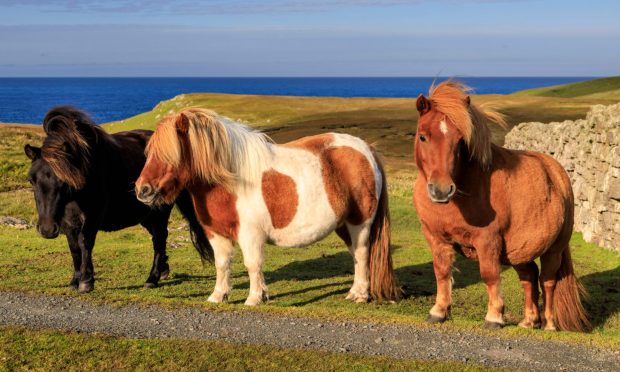
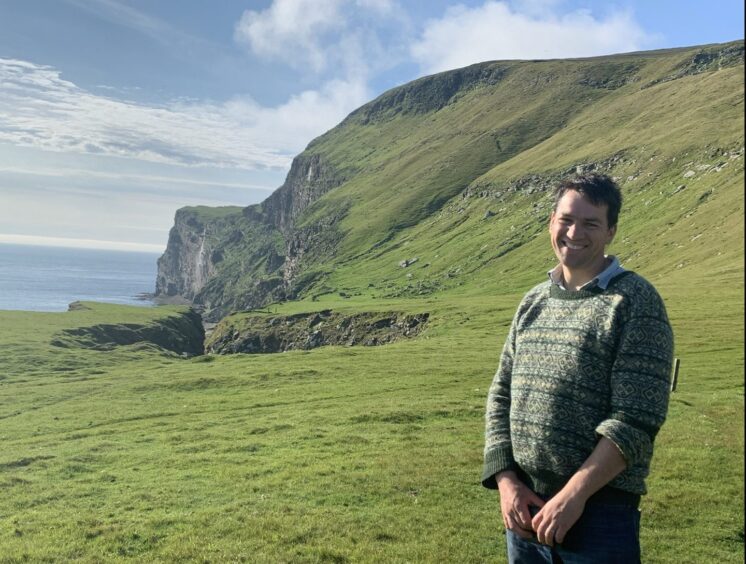
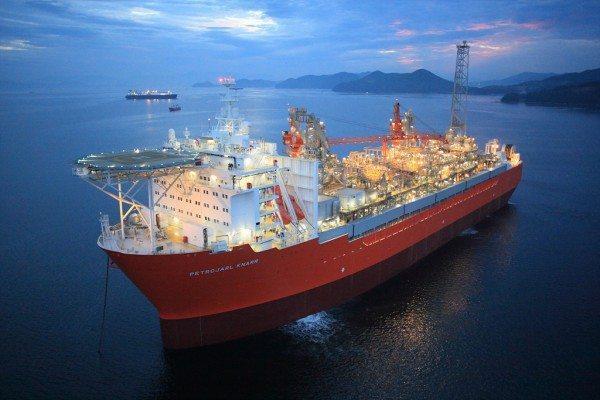

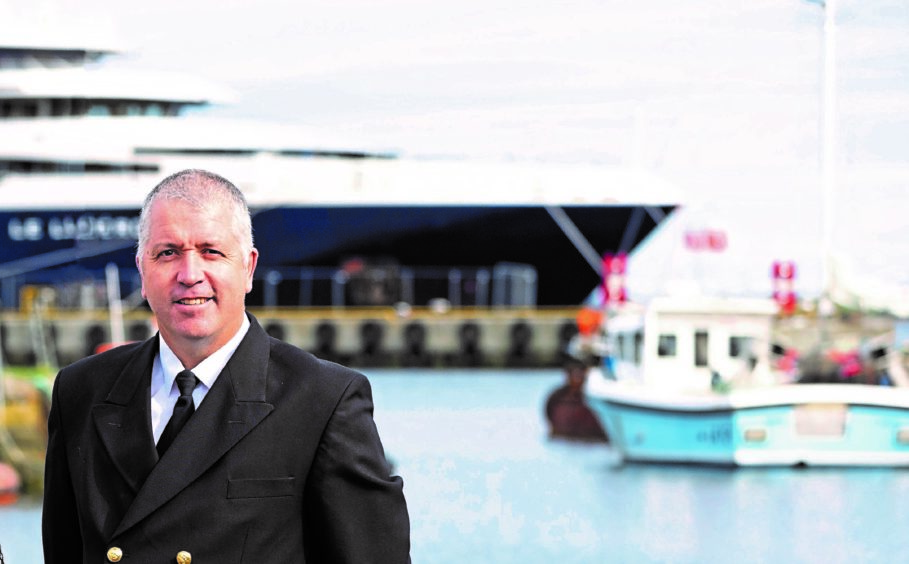
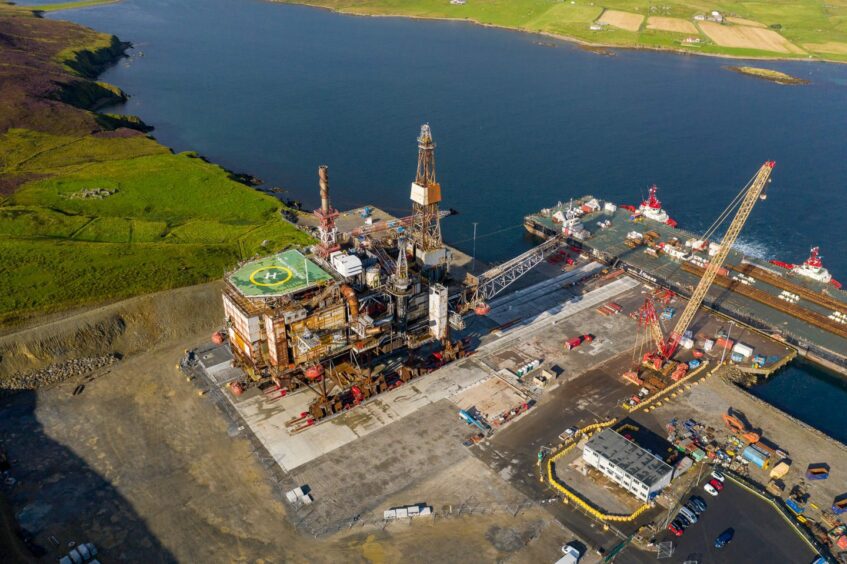
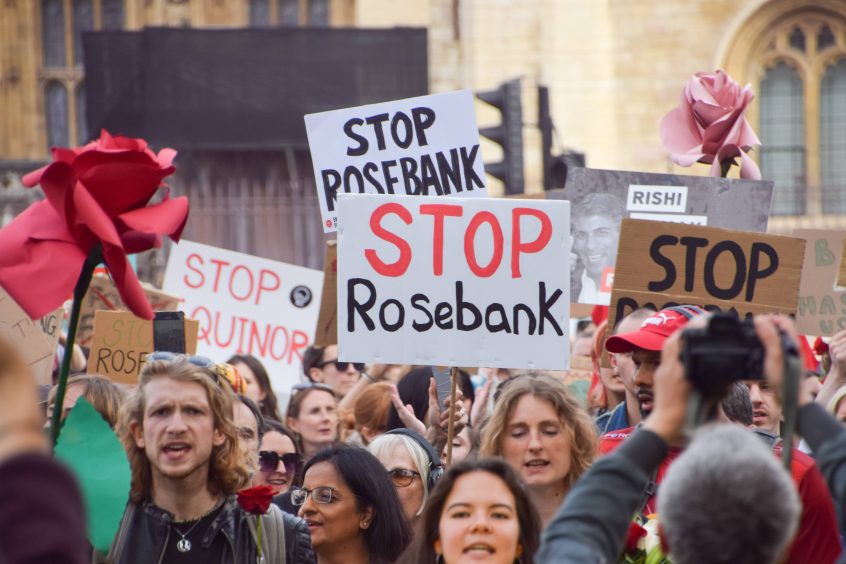
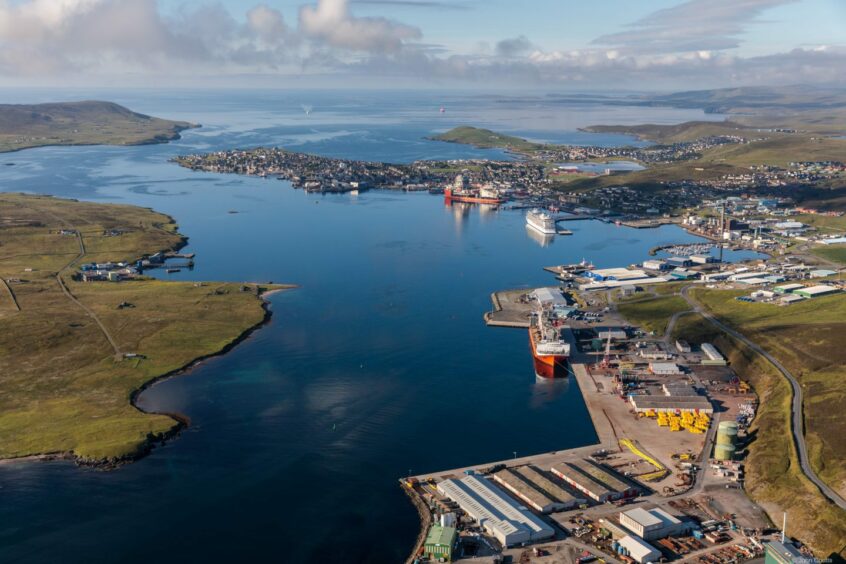
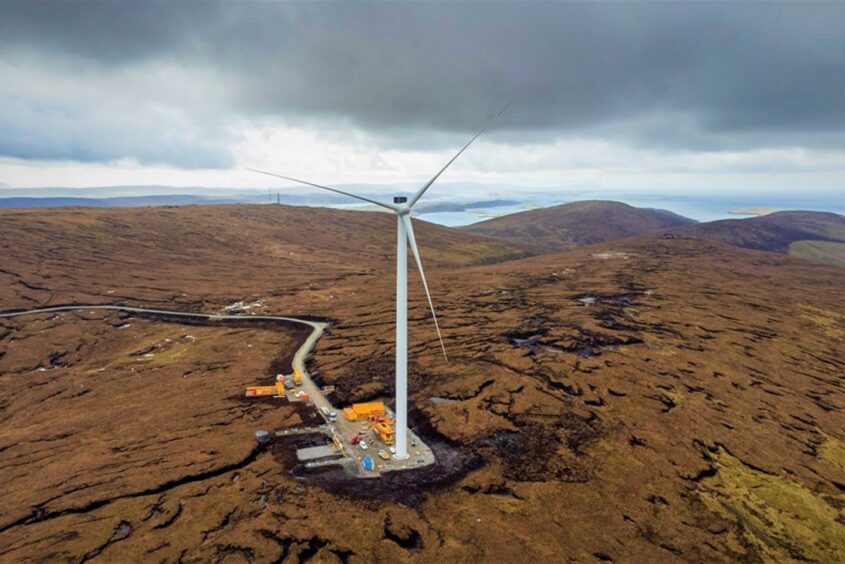

Conversation